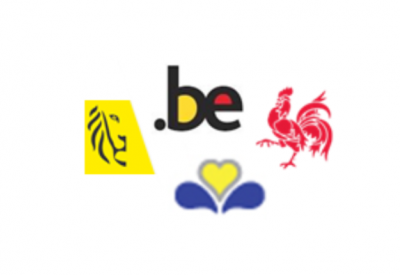Since 2011, Belgium has rolled out a programme of measures to support and promote e-Invoicing.
Several public entities have stepped up to the plate, and the private sector has also come on board. These initiatives are part of the broader framework of initiatives adopted at European level.
A website dedicated to e-Invoicing
The first version of this website was set up in 2011. The brainchild of the Agency for Administrative Simplification (ASA), it was launched within the framework of the VAT Directive 2010/45.
What did it set out to achieve? Its main purpose was to inform the public concerned or likely to be concerned about the consequences and opportunities arising from this directive, which put traditional paper invoices and paperless invoices on the same legal footing.
With the growing success of PDF invoices, the website has done what it first set out to achieve: to trigger the move to a paperless way of working. Building on this success, the new version of the website provides more comprehensive and detailed information on electronic invoicing per se. What is the ultimate goal? It wants to do its bit to encourage more automation, with all the ensuing benefits.
Aspects such as the challenges for the different target groups, the major trends, as well as the pros and cons of the different technical and commercial orientations are also addressed, without overlooking the legal and administrative aspects. In addition, feedback and links to partners make it easier for visitors to find their way through the e-Invoicing jungle.
A pilot project allowing government departments to test e-Invoicing
The B2G pilot project was launched in 2013 as part of the Optifed programme. This federal programme was set up to generate lasting savings and make the federal government more efficient.
The B2G pilot aimed to check the feasibility of e-Invoicing at government level. To do so, tools such as the Mercurius platform were set up to test electronic invoice exchanges.
This pilot accomplished its goal, as the first electronic invoice was exchanged at the beginning of July 2014. It also made it possible to identify the improvements needed for rollout on a large scale. The main one being to eliminate supplier onboarding procedures, which resulted in excessive delays and costs.
This progress was made possible by the implementation of the European Interoperability Framework PEPPOL. Thanks to this standardisation, no fewer than 3000 suppliers were able to send their invoices electronically to 1000 recipients, without the need for any specific onboarding procedure.
Mercurius and Hermes: the transition tools
Installed during the B2G pilot, Mercurius is now the electronic mailroom for invoices sent to all Belgian public entities. It is responsible for sending e-Invoices between the invoicing software used by suppliers of public entities and the latter's purchasing and/or accounting management software (provided that they comply with the PEPPOL framework). This platform is accompanied by a web portal, which allows public service suppliers who have not yet adopted e-Invoicing to send their electronic invoices in the required structured format.
The Federal Administration also makes the Hermes platform available to all Belgian companies. This free tool allows them to convert electronic invoices structured in XML to PDF format. It allows the exchange of electronic invoices between companies that already send structured electronic invoices and those that are not yet equipped to process them automatically but are happy to receive invoices by e-mail.
The Flemish Region's programme
Since 2017, the Flemish authorities have been ready to receive invoices in electronic format and, since 2018, paper invoices are no longer accepted. For several years now, the Flemish region has therefore pursued an active e-Invoicing policy similar to that adopted by Europe.
For the receipt of incoming invoices, the Flemish Region has decided to collaborate with the federal level and also to use Mercurius.
The Business Expert Group
As early as 2016, it became clear that a broad and solid consensus was essential if e-Invoicing was to enter into widespread use in Belgium.
This is where the FEB stepped in, when it agreed, in consultation with the IT sector and the public authorities, to facilitate the organisation of an expert group. It brings around the table representatives of all stakeholders with an interest in e-Invoicing (companies, authorities, solution providers, accounting federation, etc.). What is its remit? It is tasked with identifying concrete solutions to the problems faced by companies in implementing electronic invoicing.
This platform allows participants to discuss concrete cases in working groups, share knowledge and compare points of view. For example: how to apply VAT on spare parts in the automotive sector? How to round off the amounts after the comma? These discussions lead to concrete, practical and substantiated recommendations that simplify the use of standards.
This group is open to any organisation wishing to contribute to a better use of standards in the field of e-invoicing.
For more info see the article, Business Expert Group : Overview.










































